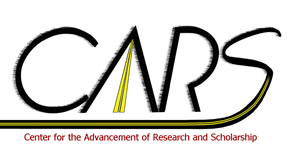Event Title
Poster: TESOL MAT Graduates’ Attitudes and Perceived Skills Toward Teaching English Learners
Location
Moakley Atrium
Start Time
10-5-2017 4:00 PM
End Time
10-5-2017 5:00 PM
Description
Teacher education has the potential to shape and influence the impactful beliefs about students and learning that teachers hold (Rueda & García, 1996) and provide teachers with the skills they need to plan instruction and manage a classroom. In addition to possessing pedagogical and content area knowledge, effective teachers of English learners (ELs) have high expectations and value cultural differences (Gersten, 1996; Pease-Alvarez, García & Espinosa, 1991).
This session will present data from a survey of TESOL MAT graduates, highlighting the respondents’ perceived strengths and skills, as well as their attitudes toward teaching ELs. Our findings suggest that graduates felt they were prepared to empathize with ELs, prepare classroom materials and design lessons. Yet, they felt less prepared to teach specific language sub-skills and to use the WIDA Frameworks. We also saw a range of attitudes about whether work should be simplified, reduced or modified for ELs in subject-area classes.
Poster: TESOL MAT Graduates’ Attitudes and Perceived Skills Toward Teaching English Learners
Moakley Atrium
Teacher education has the potential to shape and influence the impactful beliefs about students and learning that teachers hold (Rueda & García, 1996) and provide teachers with the skills they need to plan instruction and manage a classroom. In addition to possessing pedagogical and content area knowledge, effective teachers of English learners (ELs) have high expectations and value cultural differences (Gersten, 1996; Pease-Alvarez, García & Espinosa, 1991).
This session will present data from a survey of TESOL MAT graduates, highlighting the respondents’ perceived strengths and skills, as well as their attitudes toward teaching ELs. Our findings suggest that graduates felt they were prepared to empathize with ELs, prepare classroom materials and design lessons. Yet, they felt less prepared to teach specific language sub-skills and to use the WIDA Frameworks. We also saw a range of attitudes about whether work should be simplified, reduced or modified for ELs in subject-area classes.
